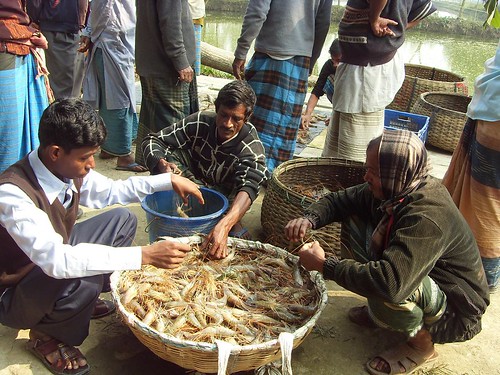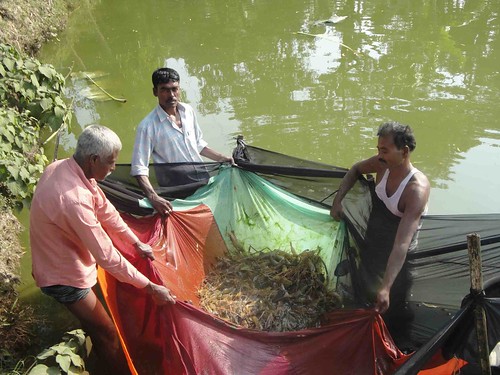
A recent Food for Progress (FFP) project in Bangladesh shows how a small effort can have a big impact on a community. The Rural Enterprise for Alleviating Poverty project is managed by Winrock International with the help of USDA and the Ministry of Fisheries in Bangladesh. The goal of this project was to help local farmers boost their incomes by adding prawns and vegetables into their existing farming efforts.
Freshwater prawn, locally called Golda, is a high-value aquaculture crop that is in great demand both in Bangladesh and internationally. Winrock provided training to local farmers on how to develop juvenile prawns in local ponds. Sixty prawn farmers developed and operated nurseries in a pilot program, producing more than 450,000 juvenile prawns. Those prawns were then sold to other interested farmers to expand their efforts, resulting in marketable size prawns.
During the two-year project, Azizul Haque became one of the most successful prawn nursery operators. After receiving training, he started his own business and harvested 18,980 juvenile prawns in his first two months, resulting in a $1,288 profit. “I have got another avenue to earn my livelihood with more income,” said Haque. “Now I am promoted from hawker to prawn producer.”
Haque is just one of the thousands of farmers who have adopted prawn farming and increased their earning potential. These farmers can now better provide for their families and make a positive contribution to the community by expanding their businesses and creating job opportunities for their neighbors.

Through Food for Progress, USDA’s Foreign Agricultural Service (FAS) provides for the donation or credit sale of U.S. commodities to developing countries and emerging democracies committed to introducing and expanding free enterprise in the agricultural sector. Commodities are monetized to support agricultural projects that increase rural incomes and enhance food security by improving agricultural productivity, supporting agribusiness development, and expanding availability of financial services.
The Rural Enterprise for Alleviating Poverty project began in March 2009 with a budget of $730,000 and was completed in September 2011. Over the course of two years, the project was able to track more than $1 million of additional farmer income generated as a result of the training.
